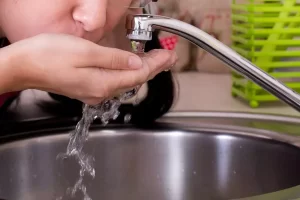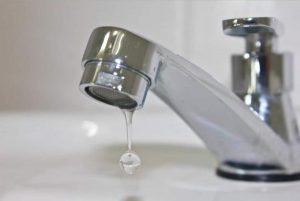Plumbing is more than just a modern convenience; it is vital to public health and safety. In Australia, where we hold our high standard of living in the highest regard, it’s impossible to overstate the importance of a well-maintained plumbing system. It ensures that clean, potable (drinkable) water flows into our homes. It also guarantees the efficient removal of waste that helps keep our environments clean and disease-free.
Let’s look deeper into the essential role that plumbing plays in preserving public health. Whether you’re located in a bustling city or a remote outback town, understanding and appreciating the value of good plumbing is essential for every homeowner.
History of plumbing and public health
The connection between plumbing and public health is by no means a new one. It spans centuries, stretching way back to historical Roman and Victorian civilisations. Each pioneered some of the earliest sanitation advances, demonstrating an initial understanding of its impact on health. Here in Australia, the later stages of the 19th century saw the introduction of organised sewer systems which marked a significant leap in urban public health advancements. Before this, insufficient waste disposal practices led to commonplace waterborne diseases like typhoid or cholera.
Over time, outbreaks of these diseases began to drop as the creation and building of more advanced sewage and plumbing systems spread across Australian cities. It effectively demonstrated the clear connection between well-designed plumbing infrastructure and improved public health outcomes. This historical context sets the stage for appreciating modern plumbing’s role.
Preventing waterborne diseases
In Australia, properly installed and maintained plumbing systems are integral to preventing waterborne diseases – like cholera and typhoid – from entering our water supplies. These systems eradicate the potential for cross-contamination of drinking water and wastewater by keeping them separate.
For example, backflow prevention devices protect water integrity by preventing dirty water from flowing back into clean water lines. This is an essential safeguard. Not only does it prevent the outbreak of disease but it also helps maintain everyday health. It effectively demonstrates how important good plumbing is to our well-being and community safety.
Safe waste disposal
Safe waste disposal is a fundamental element of any effective plumbing system, one vital to protecting Australia’s public health and natural environments.
Modern plumbing systems quickly and safely remove waste from homes. In doing so, they stop the build-up of sewage that could lead to health hazards. Now this is more than just about convenience; it’s about preventing the contamination of our land and waterways. Effective waste management through plumbing reduces the risk of disease spread. This makes it a crucial part of public safety and a key responsibility for homeowners nationwide.
Access to clean water
Access to clean water is a basic human right. That’s a given. Here in Australia, our plumbing systems are key to assuring that every household enjoys this basic necessity.
From the clean drinking water that comes directly from our taps, to water safe for daily activities like cooking and bathing, consistent and reliable access through effective plumbing is critical for maintaining hygiene and overall health.
Impact on home and community safety
Plumbing significantly influences both home and community safety in Australia. Efficient and well-maintained systems prevent urgent plumbing situations such as water leaks and other potential hazards that might lead to structural damage or electrical faults. They also prevent mould growth which can pose serious health risks in damp climates.
On a broader scale, professionally designed and installed plumbing systems ensure community areas remain free from stagnant water. Such conditions can lead to the breeding of mosquitoes and the spread of diseases like dengue fever or Ross River virus.
Plumbing innovations and public health
As technology advancements continue to pervade all aspects of our daily lives, innovations in plumbing also keep advancing public health in Australia. Such innovations can include things like:
- Updating to touchless tapware
- water-efficient toilets (like rimless toilets)
- smart water management systems
- Water filtration systems
These not only help conserve water but also reduce the spread of germs by minimising physical contact.
Across Australia, more advanced water treatment and recycling technologies are increasingly adopted. These help to further protect the health of the public by ensuring the cleanliness of water at every point of use. They highlight the continuous importance of plumbing for public health, and show a commitment to sustainability and health security in both urban and rural areas across the country.
The Role of Water Filters in Protecting Health
One of the most effective ways to safeguard your household from the dangers of PFOS chemicals is through the installation of water filtration systems. High-quality water filters can remove a wide range of contaminants, including PFOS, ensuring that your drinking water is safe and clean.
Safeguarding our future: The crucial role of plumbing
As we said at the beginning, the importance of plumbing to public health and safety cannot be overstated. Effective plumbing systems are vital to the prevention of disease, the maintenance of clean environments, and the provision of access to safe water.
For homeowners across Australia, investing in and maintaining these systems is equal parts protecting community health and wellbeing, ensuring environmental sustainability and improving the functionality of your home. It’s about safeguarding our future in a multitude of ways. Let’s continue to value and support advancements in plumbing infrastructure to keep our communities healthy and safe for generations to come.







